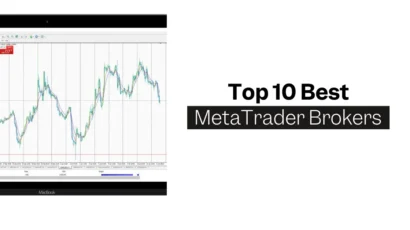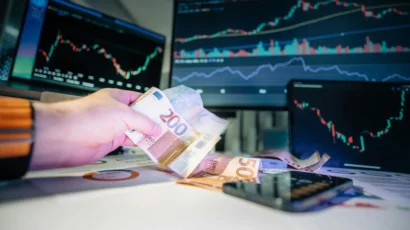Disclosure: Privacy Australia is community-supported. We may earn a commission when you buy a VPN through one of our links. Learn more.
Italy Gas Storage Near Full for Winter — While AU Predicts Frugal Christmas.
The effects of economic sanctions on Russia continue to wreak destruction on Australia’s economy, as Europe struggles — Italy comes to an agreement with Russia, successfully stocking its gas reserves to nearly fall as winter approaches.
We are steadily seeing the EU block segment amongst itself as it contends realities of the energy crisis in an increasingly fractious way, with energy issues pressing down more heavily and the weather gets colder with Christmas approaching.
Australians have been warned seriously about their spending this Christmas — Sky News host, Chris Kenny, said the energy crisis in Australia was going to get “much, much worse.” And Nationals Senator, Matt Canavan, agreed that Australia was in the midst of a combined situation of high energy prices and low energy supply despite large investments in renewable forms of energy like solar and wind energy.
The remaining crux of the energy problem in Australia remains unresolved.
Italy, however, will see its gas storage nearly at full before winter arrives, according to the chief executive of ENI energy group. Published in Reuters, Milan, Italy still has a tight situation, meaning the country needs to be alert to warning signs that could come about during the colder winter months or any unexpected issues with energy delivery said Claudio Descalzi, the CEO of ENI.
In 2021, Italy received 40% of its gas imports from Moscow. This alarming amount was cut off during the economic sanctions issued by the ‘collective west’ as a whole. However, since Italy’s leadership transition to a new leader, an agreement has been made with Putin with ENI, who is the largest importer of Russian gas.
These Gazprom Russian supplies were not totally cut off during the sanctions — they dropped to about 10% of their previous levels, reaching up to 10 million cubic metres daily. Italy was forced to make agreements with the Nordics and Algeria in order to steadily get a replacement to their supply.
Further to finding new gas supplies, Italy needs to increase its import capacity for liquefied natural gas (LNG) so that it has increased manoeuvrability in its energy supplies. According to Descalzi, Russian gas no longer offers Italy its needed degree of flexibility. Italy needs to use regasification terminals. This will be essential for the incoming winter, Descalzi announced during a digital conference.
Italy needs to increase its 17bn cubic metres (BCM) of storage capacity by up to 7bcm, in order to counterbalance all of the drained fields and give them a larger buffer of redundancies in energy infrastructure.
What Italy’s Urgent Response Suggests for Australia
Redundancies — meaning surpluses — in energy infrastructure and gas supplies can assist early in mitigating its energy costs. Descalzi was asked about any possible temporary price cap for pipeline gas to European countries, however, he said that this should have been put into place right away after the Ukrainian invasion.
Descalzi believes that this straightforward idea should have been imposed right away, which would have reduced all of the months of “speculation and fear.”
Meanwhile, Australians warned that Christmas spending could impact mortgages.
Even mainstream news outlets in Australia are agreeing that the energy crisis is going to get worse by multiple factors. Currently, Australians are being warned to be “careful” regarding their Christmas spending — or risk not being able to fulfil their mortgage payments, With the RBA announcing a six acute increase in inflation successively this week.
The Christmas budget blowout is not only a threat to those with a mortgage, and those with debt, any Australian who wants to buy a home next year will need to be thoughtful about how they spend their cash this coming winter.
Managing director of the Finance Brokers Association of Australia (FBAA), said that splashing out cash in 2022 is unwise — this “isn’t the year to do it.” Peter White added that loan and mortgage lenders will be flagging anybody who has the habit of spending large amounts frivolously. Doing so, and having it on your financial statement, could severely disrupt your ability to get a loan.
Of course, it is very questionable whether being in any kind of debt is wise during this economic and energy crisis. Nonetheless, Mr White said that banks who do issue loans will be seeking customers who are more discretionary and restrict the type of spending they do to essential things. This will be a large factor when determining who mortgage lenders issue loans to. And they will certainly take the festive season into account.
Consumer Sentiment
What do Aussies think about the coming Christmas season?
New research has been shared suggesting that Australians are preparing to make sacrifices and cutbacks this Christmas in order to survive the settling economic crisis. Although the Christmas holidays are typically a time to splurge and bask in luxuries, the current economic and energy crisis cannot be ignored even in 2022.
One survey from Compare the Market showed over 40% of Australians saying they are ready to spend less this Christmas than in previous Christmases. Furthermore, 8% were already paying more attention to discounts and sales over the holidays.
One reason why this included the sixth consecutive increase in interest rates by the Reserve Bank of Australia — adding pressures to living costs and forcing customers to tighten their wallets.
A spokesperson for Compare the Market, Chris Ford, empathised with this increased conservative as you’d with the cost of key essentials like fuel and groceries steadily rising. Things are shaping up to look like an expensive “And to 2022,” said Chris Ford as Christmas quickly approaches.
People are seeking ways to reduce stress over the festive season. Energy bills are skyrocketing, with groceries reaching all-time highs, Insurance increasing, and more. All of this is encouraging less spending, more savings, and changes in shopping habits.
In fact, over 35% of Australian households will not put up Christmas lights or will reduce it.
23% said they would run less aircon, and get rid of extra freezers or fridges.
Certain electricity bills have doubled over the last few months in Australia because of the energy crisis. So small things like turning off unused appliances or getting rid of extra fridges can have a large impact on the household bill. Getting rid of a spare freezer or fridge could save as much as 30% on energy bills because unused appliances use up around 10% of the total bill.
On average, Australians are expected to spend $716 for Christmas 2022, although this varies significantly from state to state.
Takeaway
We can expect Europe and even pre-existing nations to continue to segment and bicker between themselves. Already, Italy has taken a large turn away from the EU, signalling it potentially leaving the EU altogether alongside Hungary.
We can anticipate more countries following suit, as Italy stocks up on its gas ready for winter. On the contrary, Australia is seeing its energy crisis worsening by the week. Overall, the nation is expecting a frugal Christmas, particularly for Western Australia and Queenslanders.
The question remains, however: when will the underlying problem be resolved? Tax reliefs can only have a limited impact unless Australia is able to find a stable and large enough supply of gas to replace its shortages — and Russia has the backing of OPEC at present, meaning that any attempts to fix the price of gas internationally are doomed to fail. Albeit, the issue in Australia is of a different nature to Central Europe, which has a harsh winter in many of its member states.






Your article helped me a lot, is there any more related content? Thanks!